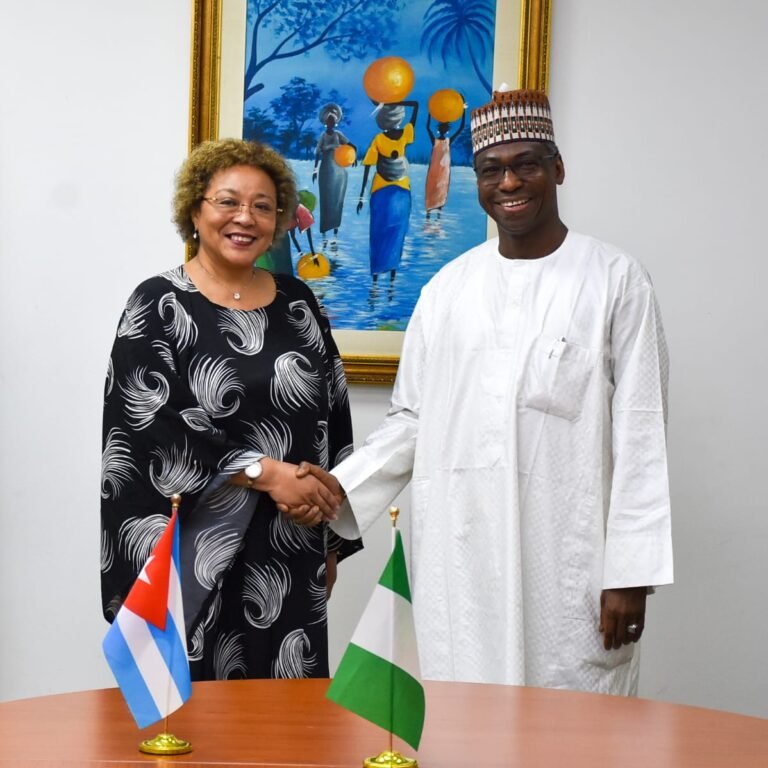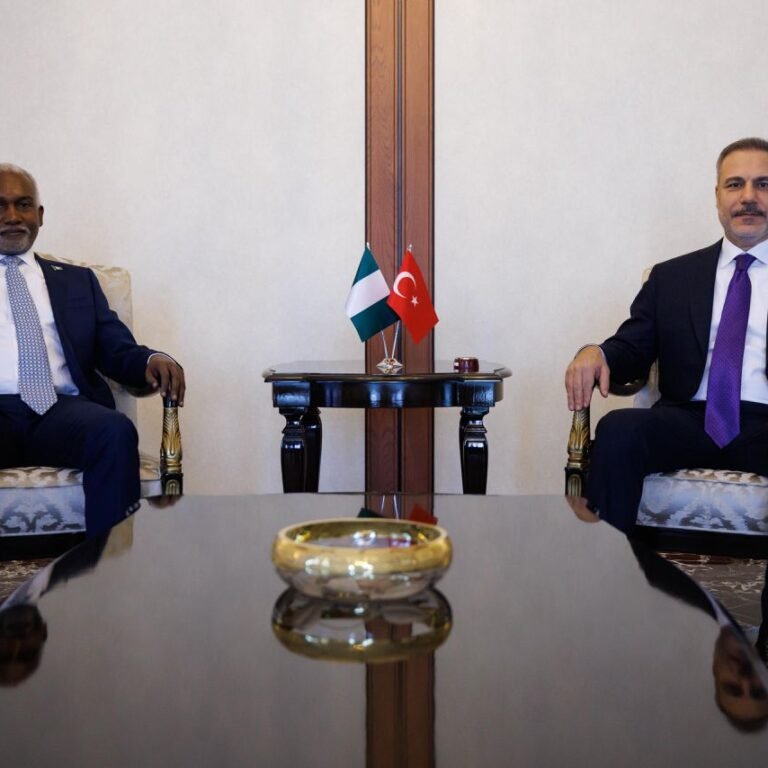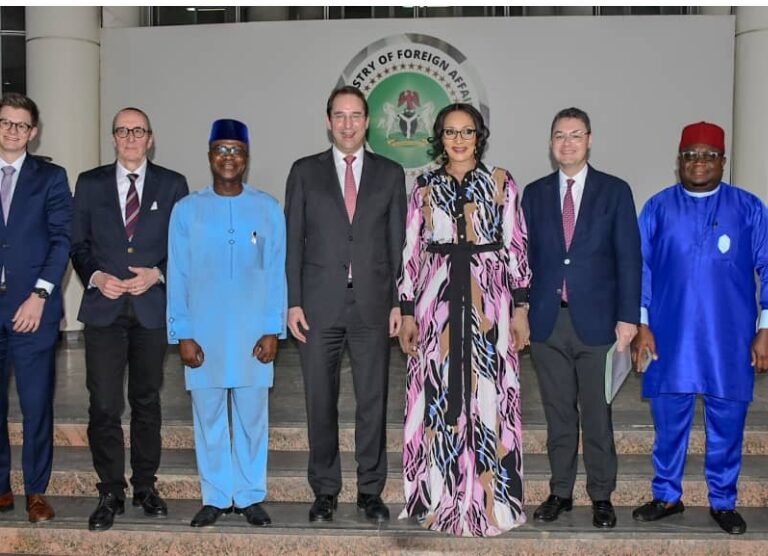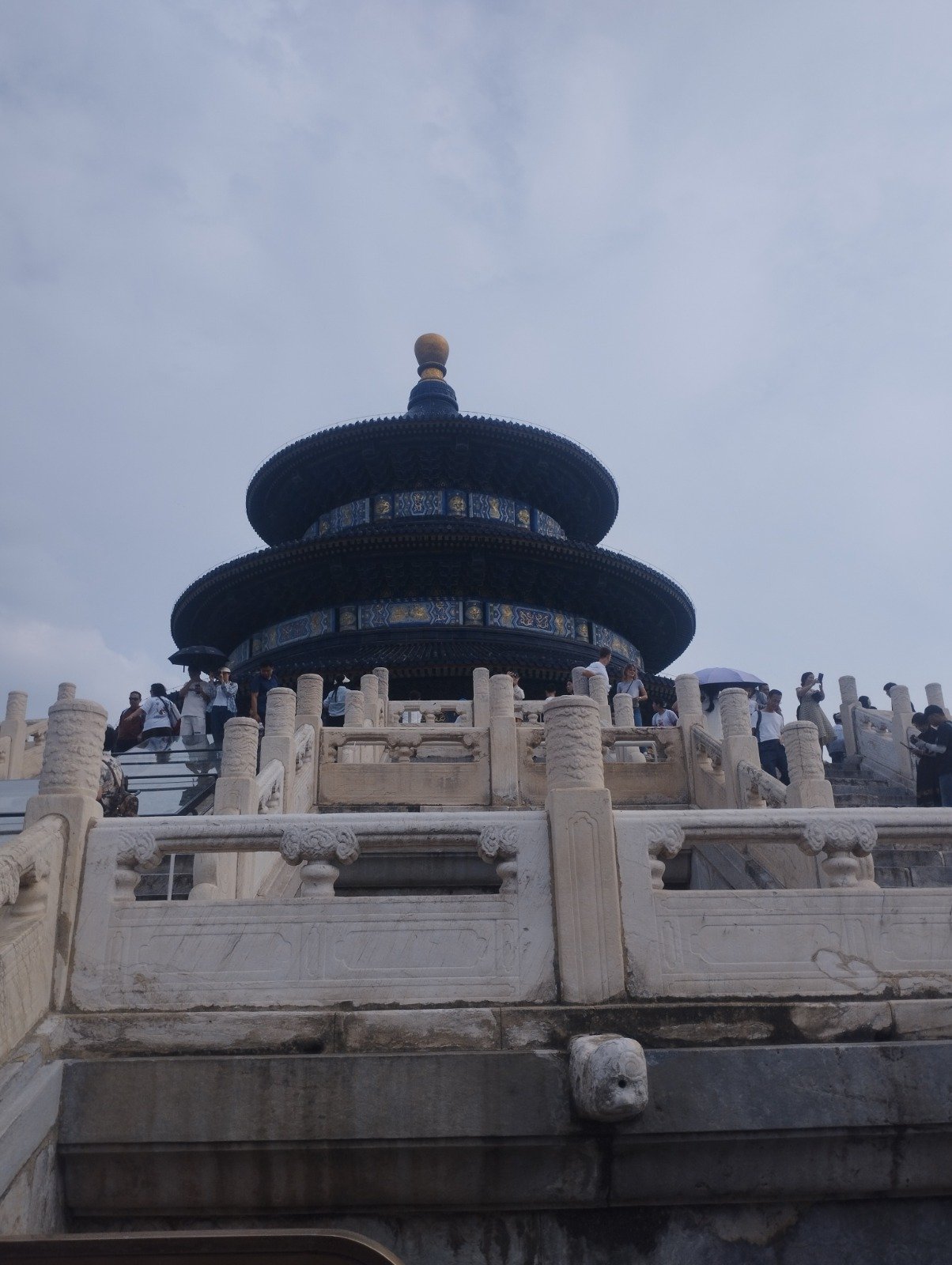
By Collins Ajibola (Wang Jian)
There is one thing you cannot take away from China, Cleanliness. Truly, cleanliness is next to Godliness. China is evident of this statement. Days were counting, activities rolling, engagements intensifying. Participants were mingling seamlessly. Fanfare, excitement, uncertainty, not knowing what to expect filled our minds as participants when Mr. Peng announced the next phase of our stay. ‘’We will be traveling to Hunan and it will be by air for two hours. Please get your things ready. But travel light. You won’t need plenty of your luggage there.’’
This was part of the very loaded schedule of activities and plan. Some which were well detailed such as very mind opening open ceremony, the sumptuous welcome Banquet, an overview of China, a topic spoken by Mr. Chen Mingming of the Ministry of Foreign Affairs, all on the first and second day.
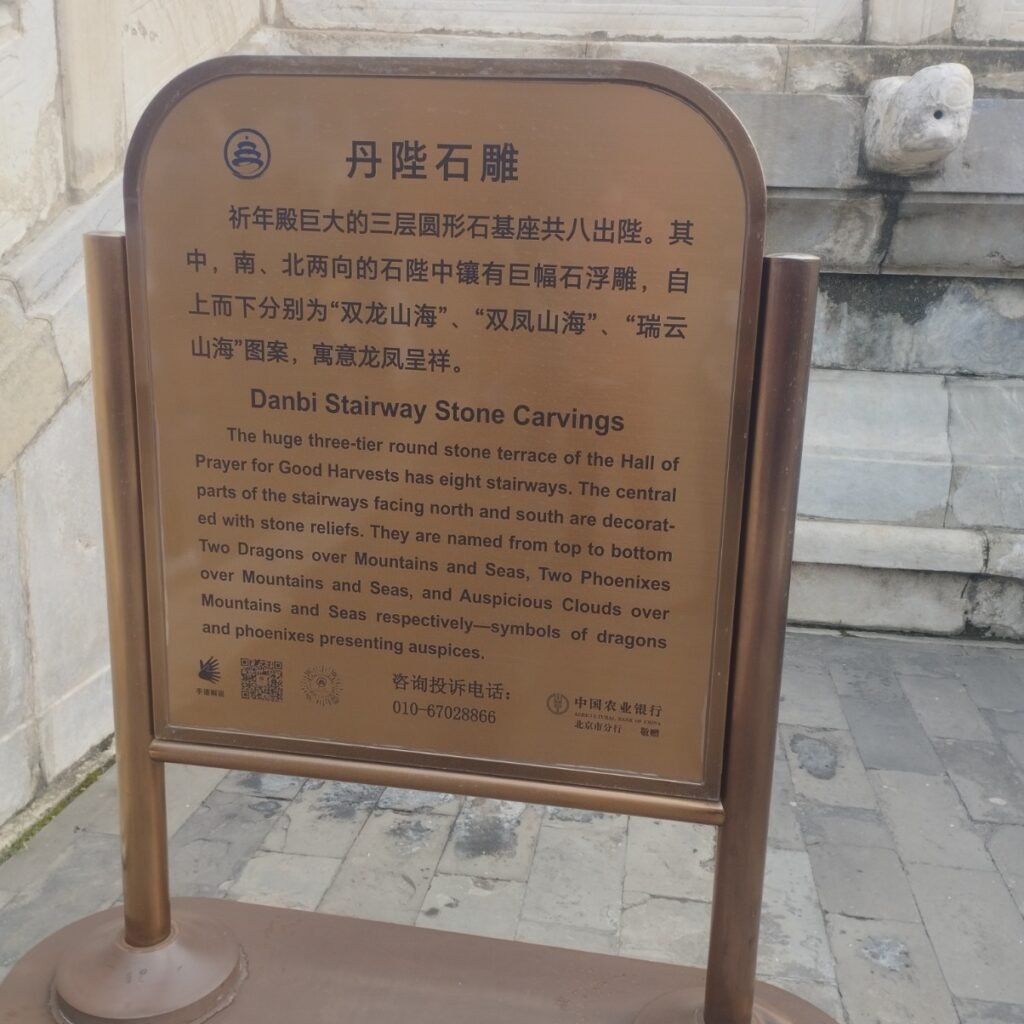
The third day of the event, Friday 4th July, was heralded by a lecture on Sports Culture as it makes the World More Inclusive, delivered by Prof. Zhong Bingshu, the Deputy Principle, Beijing Sports University and Lecture on Chinese Dragon Boat Racing Culture: Historical Origins and Cultural Heritage delivered by Mr. Cui Lequan of the Sports Cultural Development Center of General Administration of Sports of China.
It was weekend. Saturday 5th, 9am, the hall was graced by Professor, Yang Tieli, of the Capital University of Physical Education and Sports, who delivered his lecture on Integrated Development of Culture, Sports and Tourism Industry. By afternoon, it was a visit to the famous Bairong market. Shopping spree for participants. An atmosphere never to be forgotten. Here, I bought my very first item on the soil of China. That climaxed the day’s activities. But not without dinner. I will come to tell you about one man. A dedicated man. Diligent to his duty at the Restaurant. He will put off lights when its time, a signal for evacuation of the Restaurant after every meal. He wasn’t participants’ favourite, but he was doing his job.
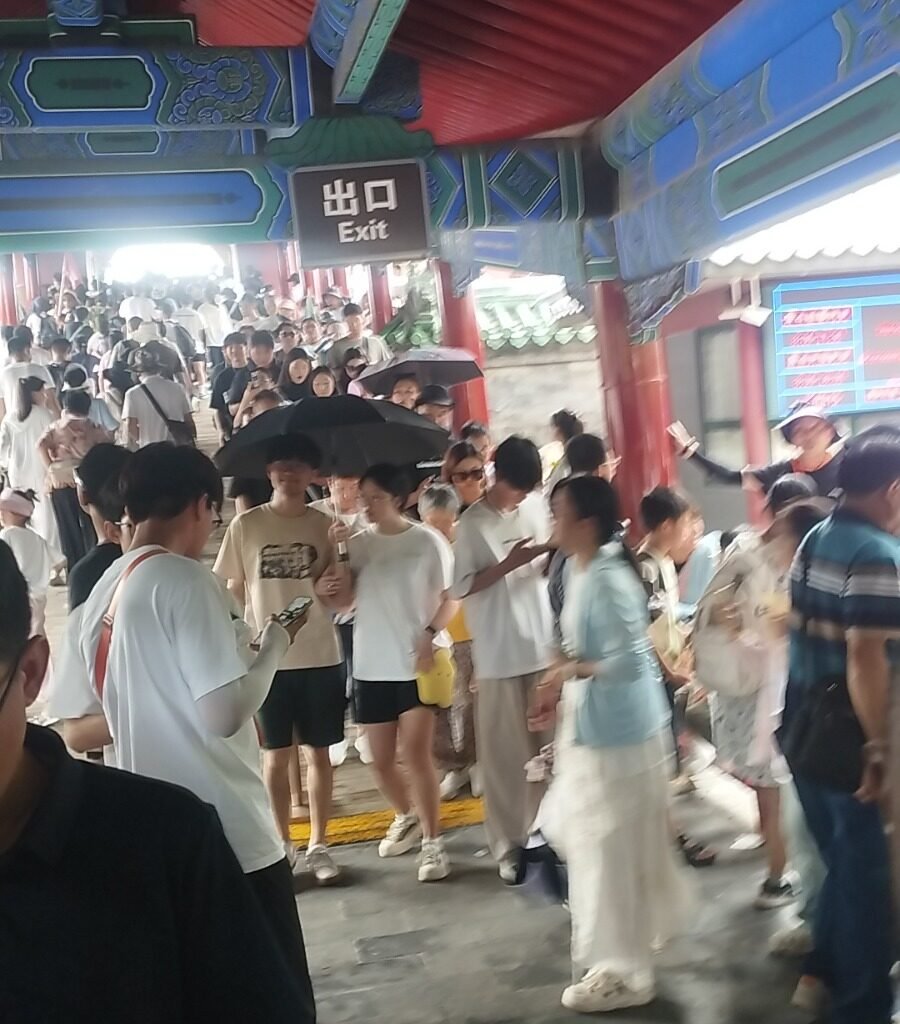
On Sunday morning, we had our lecture and this time was an astute and sports enthusiast, Professor Liu Xiaolei of the Beijing Sports University, who took us on the topic, Chinese Fitness Qigong. An interesting one I must say. There was display of rigidity of bones, flexibility of Muscle and stiffness of joints. Participants were taken through the exercise routine. We enjoyed it.
As normal with his communication outlie, Mr. Peng had announced our next visiting site, the Summer Palace. The Summer Palace is one of China’s most iconic imperial landmarks and a UNESCO World Heritage Site. Located in northwest Beijing, it served as a luxurious summer retreat for the Qing dynasty emperors, particularly Empress Dowager Cixi in the late 19th century. Some key Facts about the Summer Palace, located at the Haidian District, Beijing, China, include, its size of over 290 hectares (primarily made up of Kunming Lake and Longevity Hill), built originally in 1750, rebuilt in 1886 after being damaged by foreign invasions, under the Qing Dynasty and currently, it has UNESCO Status, designated in 1998 as a masterpiece of Chinese landscape garden design. #
What Makes It Special?
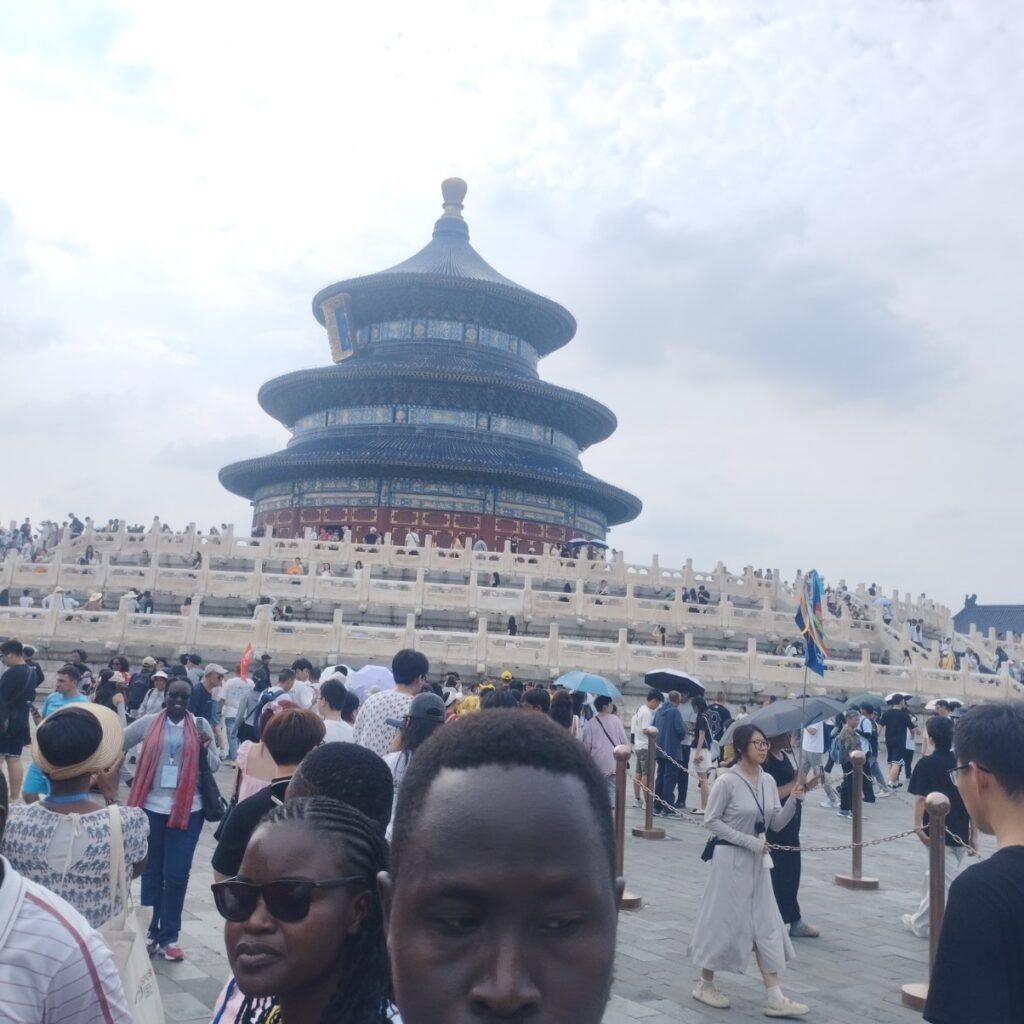
The Summer Palace is a harmonious blend of natural beauty and architectural elegance, designed with symbolic elements of Chinese cosmology and imperial philosophy. It is often considered the best-preserved royal garden in China. Some of the main Attractions, are: the Kunming Lake, which covers about three-quarters of the site, inspired by West Lake in Hangzhou and also tourists can take a dragon boat ride across the lake. Its longevity Hill offers panoramic views and it serves as home to major temples and pavilions.
Then, the Long Corridor, which is over 700 meters long, decorated with 14,000+ colorful paintings depicting Chinese myths and landscapes. Its Marble Boat has a lakeside pavilion made of marble, and edifice which symbolizes stability of the Qing Empire, not forgetting the Seventeen-Arch Bridge, by records, the longest bridge in the garden, leading to to Nanhu Island.
China is known for its Cultural Significance, the Summer Palace, an example. The Summer Palace is more than just a scenic site, it’s a symbol of imperial power, Confucian ideals, and Daoist harmony with nature. The architecture, layout, and artistic elements all follow traditional Chinese design principles. We surely had fun. Got informed and above all bonded more.
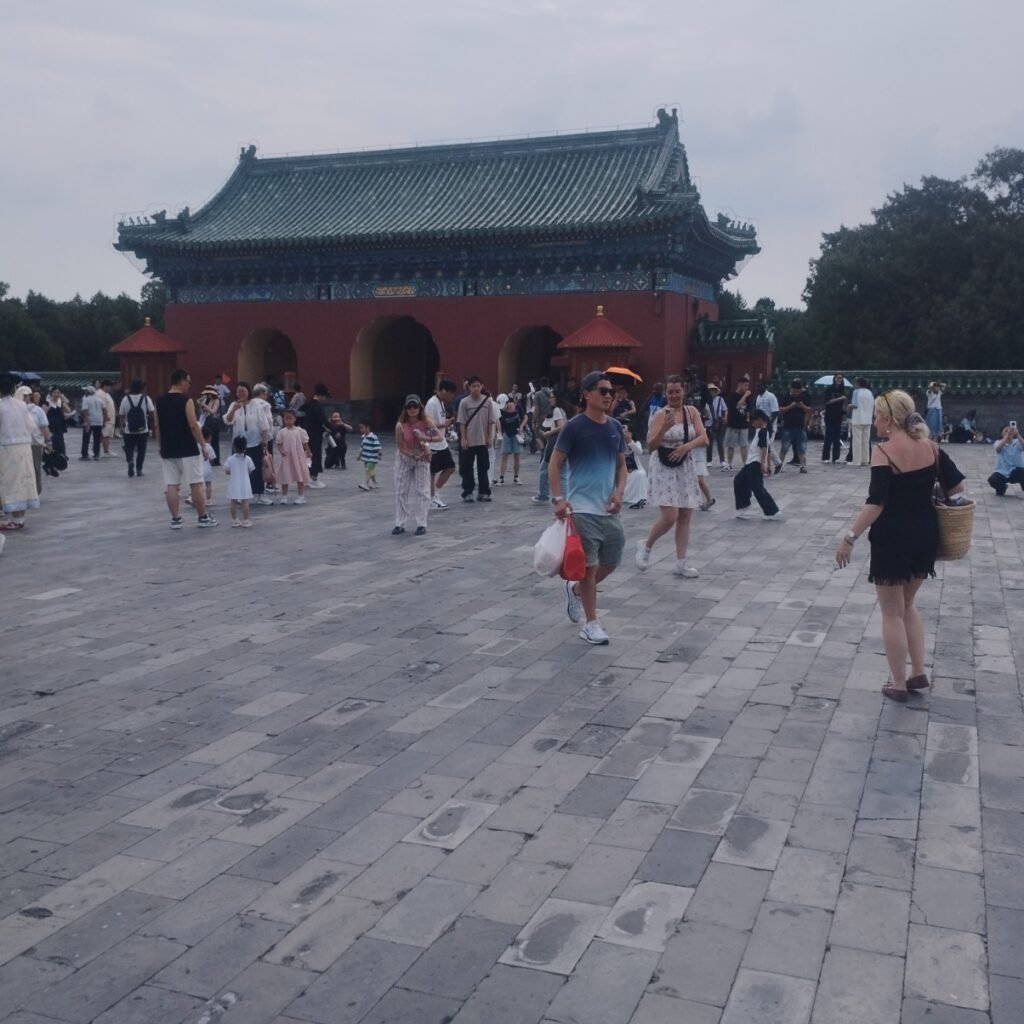
By the time we got back to our Hotel, it was another dinner time. Discussions were rife. Alot to talk about. This time BUS 1 was gaining momentum. Fun, loving, entertaining and interesting. It was going to later manifest in Hunan. I will tell you more as we proceed.
By the following day, at the Tourism class. It was explosive. Professor Jiang Yiyi of the Beijing Sports University mounted the podium, she was apt as she spoke to the topic, Integration of Sports, Culture, Tourism, and Commerce: Policy Directions, Markets Trends and Industrial Innovation. You can only NOT learn in China, when you don’t visit China. A visit to China, is a visit to place of learning and eye opening. You will be amazed. The afternoon session was a lecture on Global Perspectives and Chines Practices in Ice-Snow Tourism also delivered by Professor Jiang Yiyi. We later visit the Snow City in Hunan. A never to be forgotten experience. That was where my very good friend Chinenye Peter aka CP asked me about my experience. I will later tell him… your guess is as good as mine.
The lecture on Tourism continues, but by the next day it was the turn an astute erudite scholar, a woman on many caps and inspiration to every girl child, Professor Zhang Rui from the Peking University. Her lecture was rich, educative, informative and challenging. The challenge? What we can do to follow the steps of China to greatness, in our various countries.
The evening was another visit to another historic site, THE TEMPLE OF HEAVEN. The Temple of Heaven is one of the most important and iconic cultural and religious landmarks in China. Located in southeastern Beijing, it was a sacred site where emperors of the Ming and Qing dynasties performed elaborate rituals to pray for good harvests and harmony between heaven and earth.
Some information about this iconic place are that it was first constructed in 1420 during the reign of Emperor Yongle (same emperor who built the Forbidden City). In 1998, it gained a UNESCO World Heritage Site label.
Serving the purpose of a ceremonial site where emperors held rituals to worship Heaven and offer sacrifices for abundant harvests. The Spiritual and Cultural Significance, is that, in ancient China, the Emperor was regarded as the “Son of Heaven.” His role was to mediate between heaven and earth. The Temple of Heaven was the most sacred site where he performed these duties, especially during the winter solstice.
Depicting the architecture and layout reflect Chinese cosmology that, Heaven is round, and the Earth is square, the complex symbolizes the relationship between humans and the universe. With main Structures in the Complex, such as Hall of Prayer for Good Harvests, most iconic building, with a triple-gabled circular roof, no nails used in construction, a place where emperors prayed for favorable weather and abundant crops. There is also, Imperial Vault of Heaven, which Houses the spirit tablets used during rituals and is surrounded by the Echo Wall, where a whisper can travel great distances.
There is also, the Circular Mound Altar, which has an an open-air altar with nine concentric rings of marble stones with the number nine representing the emperor. Standing in the center amplifies your voice, this is known as the “Heavenly Center”.
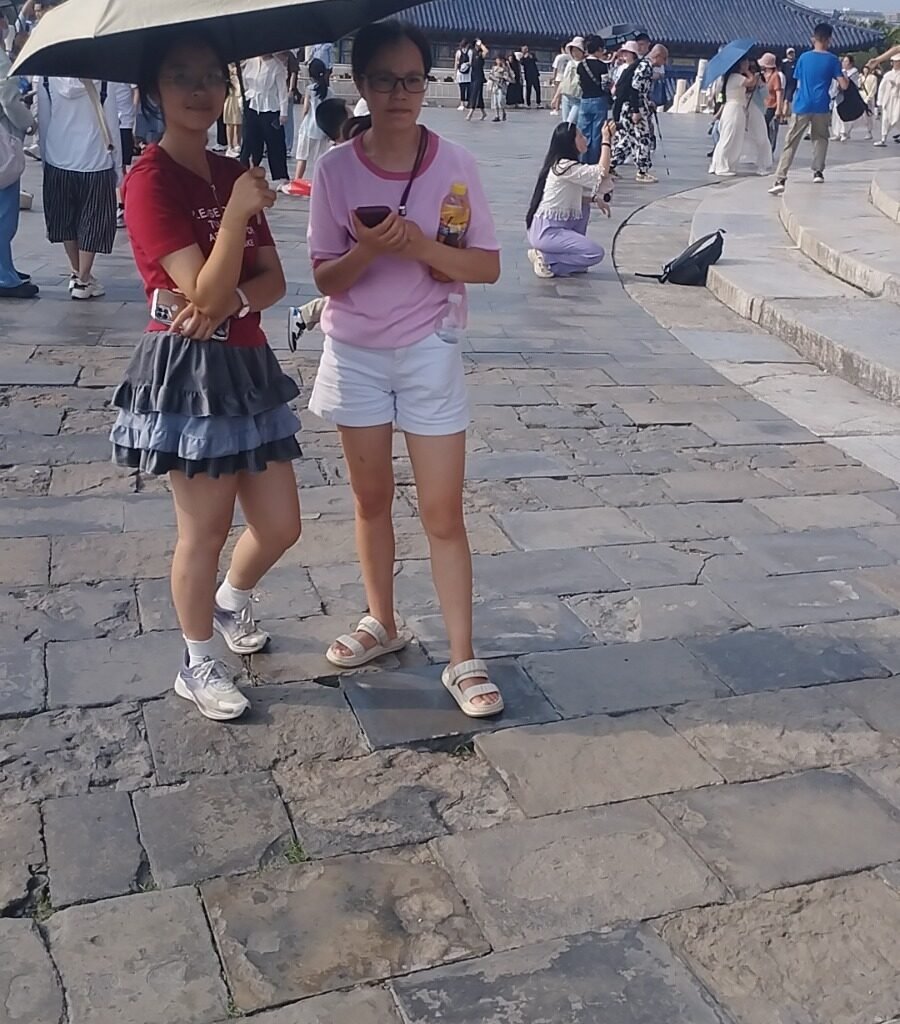
Noticeable architectural highlights are the perfect symmetry and balance reflect harmony between heaven and earth, use of colours and numbers, which to me is very symbolic, especially with the Blue roof tiles representing the sky, Red walls signalling power and dignity, and also, the Nine steps, nine stones, nine pillars, symbolising imperial symbolism. The Temple of Heaven covers about 2.7 million square meters, reflecting the higher reverence given to Heaven over the Emperor himself.
For the first half, this was our last time out in Beijing. At this time, we have been adequately briefed about our trip to Hunan the next day, Wednesday 9th.
Our stay in Hunan? Falls into every category of Tourism. I will be giving you bit by bit of it in the subsequent article. For now… nǐ hǎo
To be continued…


